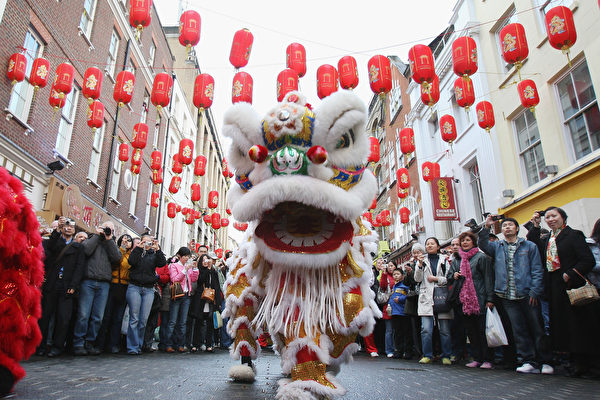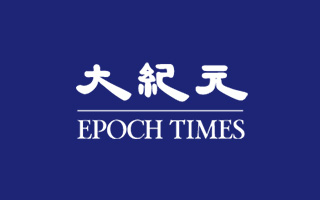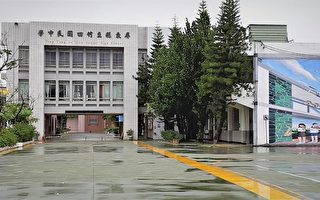【大紀元2019年01月15日訊】Most of the Taiwanese people are from the Han ethnic group and speak Mandarin. We follow cultural customs of our mainland counterparts. While Chinese New Year, or also called the New Year’s Day, is one of the most important events in Chinese communities throughout the world.
The New Year’s Day begins on the first day of the first lunar calendar month. The year of 2019 falls on February 5th. It is the year of the pig, according to Chinese zodiac, or animal sign.
【中譯】
台灣人多數來自漢族,說中文(普通話),同樣遵循大陸華人的文化習俗。新年,或稱過年,可說是全球華人社會最重要的日子。
過年從黃曆正月初一開始。2019年則落在2月5日。根據十二生肖,今年是豬年。
If you are interested in this family-reunioned holiday and enjoy everywhere decorated with gold or red color as a symbol of Xǐ Qì Yáng Yáng/喜氣洋洋/may happiness and luck full of you.
Follow us to celebrate and get to know what lucky phrases you can say, what must-do’s, and what must-not-do’s especially during this period of time.
【中譯】
如果你喜歡家人團聚的日子,並享受處處以金或紅色裝飾的氛圍(象徵喜氣洋洋)。
那就跟我們一起慶祝,了解新年吉祥話怎麼說?什麼事一定要做?什麼禁忌要避免?
【單字/詞解析/背景知識】
● Hàn Zú/漢族/the Han ethnic group
漢族,生活在東亞地區的一個民族,種族上屬於東亞蒙古人種,是數個現代國家和地區的主體民族。占中國大陸人口92%,占臺灣人口97%,占新加坡人口74%,占馬來西亞人口23.4%。漢族在世界各地皆有分布,總人口約為13.9億,約占世界人口的18.2%,目前是世界上人口最多的民族。漢族通常被認為是上古傳說炎帝(或神農氏)與黃帝(或軒轅氏)兩個部落的後裔,所以才有「炎黃子孫」的稱謂。
● mainland counterparts,名詞/ˈmeɪn.lænd/ /ˈkaʊntə(r)ˌpɑː(r)t/大陸人民
解析:mainland,不含周邊小島的大陸本土。counterparts,在不同地方,但有相似處的同胞。
● festival,名詞/ˈfestɪv(ə)l/節日(慶)
解析:The Moon Festival is celebrated on the fifteenth day of August based on lunar calendar.(黃曆八月十五日慶祝中秋節。)
● community,名詞 /kəˈmjuːnəti/社區(團、會)、界
解析:Drug trafficking is a matter of big concern for the entire international community.(販毒是整個國際社會都相當關注的問題。)
● lunar,形容詞 /ˈluːnə(r)/月亮的
解析:Apollo 11 lunar lander safely touched down on the moon.(阿波羅11登陸器,安全地降落在月球上。)
● Shí’ èr Shēng Xiào/十二生肖/Chinese zodiac(animal sign)
解析:in astrology(占星學), any of the twelve symbols that represent parts of the year。西方有12星座,對應東方的12生肖。例句:What is your star sign?(你是什麼星座?) What is your animal sign?(你屬什麼生肖?)
● decorate,動詞/ˈdekəreɪt/裝飾
解析:Have you decorated your Christmas tree yet?(你的聖誕樹裝飾,完成了嗎?)
● symbol,名詞/ˈsɪmb(ə)l/象徵
解析:A heart shape is the symbol of love.(心形是愛的象徵。)
● phrase,名詞 /freɪz/詞語
解析:lucky phrases 也可說 lucky words。中文裡常用的成語、俗諺(慣用語)、雙關語,英文我們可以用:idioms, sayings (proverbs), or puns。
Idioms(成語):通常無法顧名思義,英文例如:It’ll be a cold day in hell.(意指:決不會發生!);中文例如:汗牛充棟(指藏書眾多)。
Sayings or proverbs(俗諺或慣用語):普遍為眾人所知、所用。英文例如:Practice makes perfect.(熟能生巧);中文例如:天下沒有白吃的午餐(No pain, no gain.)。
Puns (雙關語):同音、多義的用語,暗指不同意義、趣味橫生。英文例如:Where do polar bears vote? The North Poll.(北極熊在哪裡投票?北極。)英文的 poll,指的是投票的地方。
● 2019年是豬年(The year of 2019 is the year of the pig.)
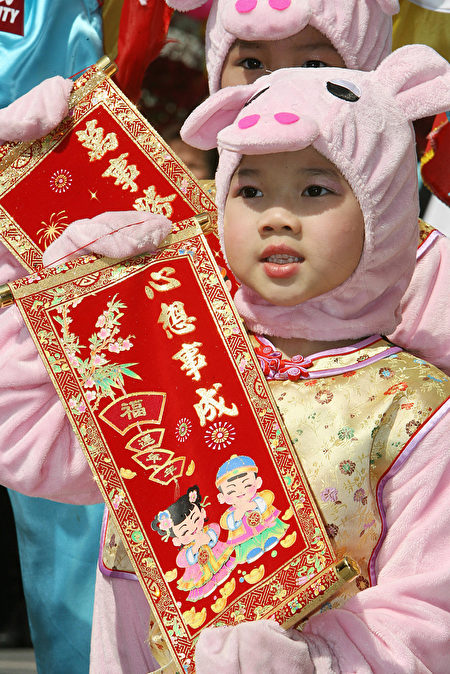
The Pig is the twelfth of all zodiac animals. According to one myth, the Jade Emperor said, let’s race to cross the river, and the place would be decided by the order in which you arrived to the destination. Pig was late because he overslept. When he arrived, he was the last one and could only take the twelfth place.
In Chinese culture, pigs are the symbol of wealth and that is probably the “Piggy Bank” invented and widely used among children.
【中譯】
豬,在十二生肖動物裡排名第十二。神話故事裡,玉皇大帝說,(各位動物)我們來比賽渡河,排名的順序就由先後抵達終點決定。豬因為睡過頭而遲到。當他抵達時,已經是最後一個了,只拿到第十二名。
在中華文化裡,豬是財富的象徵,這大概也是豬造型「撲滿」的出現,且廣為孩子使用。
● 生肖屬豬的性格(Characters and personalities of the pig)
Pigs might not stand out in a crowd. But they are very realistic. Others may be all talk and no action. Pigs are the opposite.(生肖屬豬的人,可能不會出類拔萃。但他們非常實際,多數人可能光說不練;屬豬的人則願意行動。)
Though not wasteful spenders, they will let themselves enjoy life. They love entertainment and will occasionally treat themselves. (他們雖然不至於浪費,但也會享受生活。喜歡娛樂,偶爾也會寵愛自己一下。)
They are a bit materialistic, but this is motivation for them to work hard. Being able to hold solid objects in their hands gives them security.(傾向物質主義,但這也是他們努力工作的動力來源。手中握有實物,會讓他們充滿安全感。)
They are energetic and are always enthusiastic, even for boring jobs. If given the chance, they will take positions of power and status. (即使工作再無聊,他們也是精力充沛、充滿熱情。一旦機會出現,他們將會掌握權力和地位。)
【Jí Xiáng Huà/吉祥話/Lucky Phrases】
(1)Xīn Nián Kuài Lè/新年快樂/Happy New Year
Meaning:Wish you happiness in the New Year
(2)Gōng Xǐ Fā Cái/恭喜發財/
Meaning:Hope you make a lot of money
(3)Cái Yuán Gǔn Gǔn/財源滾滾/
Meaning:Money Luck to roll in
(4)Xīn Xiǎng Shì Chéng/心想事成/
Meaning:Have all of your wishes come true
(5)Shēn Tǐ Jiàn Kāng/身體健康/
Meaning:Wish you good health
(6)Wàn Shì Rú Yì/萬事如意/
Meaning:May everything you wish go well
(7)Dà Jí Dà Lì/大吉大利/
Meaning:Have great fortune and favor
(8)Zhū Shì Shùn Lì/「豬」(諸)事順利
Meaning:May every matter you plan go smoothly
(9)Miào Yǔ Rú Zhū/妙語如「豬」(珠)
Meaning:May always speak with witty remarks
【Yī Dìng Yào Zuò/一定要做/Must-do’s】

(1)Putting up decorations
Every street, building, and house where New Year’s Day is celebrated is decorated with red and gold. Red is the main color for the festival, as red is believed to be an auspicious color. Red lanterns hang in streets and red couplets are pasted on doors. Places and buildings are decorated with red New Year pictures depicting images of prosperity.
【中譯】(1)Bù Zhì/佈置
慶祝過年的每一條街道、建築物和房屋都以紅色和金色佈置。紅色是過年的主色,象徵吉祥。街上處處可見紅色燈籠;貼在門上的春聯也是紅色的。各處建築更裝飾著描繪繁榮景象的紅色新年圖片。
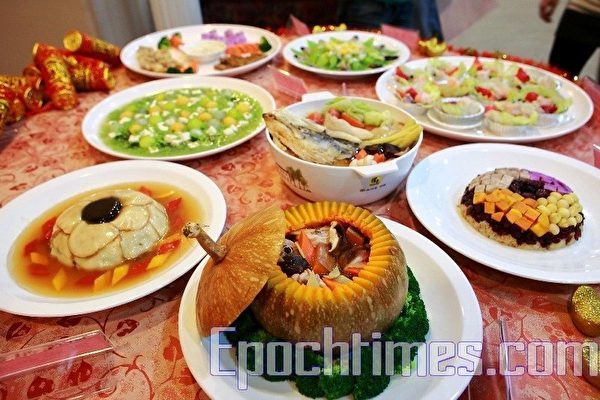
(2)Eating reunion dinner with family on New Year’s Eve
Chinese New Year is a time for families to be together. Wherever they are, people are expected to be home to celebrate the festival with their families. The New Year’s Eve dinner is called ‘reunion dinner’, and is believed to be the most important meal of the year.
【中譯】(2)Chī Tuán Yuán Fàn(吃團圓飯)/除夕與家人一起吃團圓飯
中國新年是家人團聚的時光。無論身在何處,大家都希望回家與家人一起慶祝這個節日。除夕夜晚餐,稱為「團圓飯」,是一年中最重要的一餐。
(3)Firecrackers and fireworks
In traditional Chinese culture, firecrackers were originally used to scare away evil spirits. Today, lighting firecrackers and fireworks is a major activity to celebrate the coming of the New Year, and also a way to enhance the festive atmosphere.
【中譯】(3)Fàng Biān Pào(放鞭炮)/炮竹和煙火
在傳統中華文化裡,炮竹最初是用來嚇走邪靈(年獸)。現今,燃放炮竹和施放煙火,成為慶祝新年到來的主要活動,也是增添過年氣氛的一種方式。
(4)Giving red envelopes
At Christmas in the West, people exchange gifts to express care for each other, while, during the New Year’s Day, the most common New Year gifts are red envelopes. Red envelopes have money in, and are believed to bring good luck. They are given to children or those younger than you in the family. Employers often give red envelopes to employees on the first work day right after holidays.
【中譯】(4)Sòng Hóng Bāo/送紅包
西方的聖誕節,人們交換禮物,表達對彼此的關懷;而過年最常見的新年禮物是紅包。紅包裡放錢,據說會帶來好運。紅包通常給小孩和家族中較年輕的成員。通常雇主會在上班的第一天給員工紅包。
【Jìn Jì/禁忌/Taboos】
(1)Don’t sweep or take out garbage
The act of sweeping on this day is associated with sweeping wealth away. Taking out garbage symbolizes dumping out the good luck or good fortune from the house. Normally, it has to wait until the fifth day of the New Year to clean up the garbage.
【中譯】(1)Bù Sǎo Dì(不掃地)/不掃地、不倒垃圾
掃地,意謂著掃走財富。倒垃圾,可能把家裡的好運跟財富都倒光光。通常要等到初五才可以清運垃圾。
(2)Don’t say bad words
Don’t use words with negative meanings. Stay away from terms with negative meaning relating to death, sickness, pain, ghosts, poverty, and especially the number four.
【中譯】(2)Bù Shuō Zāng Huà/不說髒話
不說有負面含義的話。不說跟死亡、疾病、痛苦、鬼魂、貧窮,以及數字4的話。
(3)Don’t break anything
Breaking things, like bowls or plates, on the New Year’s day may result in losses or family rifts in the future. But if you do, the remedy is to say 歲歲平安 (Suìsuìpíng’ān). The first character sounds like the sound to “break” (碎), but in this case it is replaced with a homonym that means “age” (歲), and said twice means to live a long life and adds the words “peace” and “safety” (平安) at the end.
【中譯】(3)Bù Dǎ Pò Dōng Xī/不打破東西
在新年的第一天,打破像碗或盤子的東西,可能會導致損失或家庭失和。但如果真的不小心打破了東西,補救措施就是說歲歲平安(Suìsuìpíng’ān)。第一個字聽起來像是「破碎」(碎)的聲音,但在這種情況下,它被替換為同義詞,意思是「年齡」(歲),並說兩次意味著過著漫長的生活,並添加「和平」字樣,最後是「安全」(平安)。
(4)Don’t use sharp objects
Avoid using knives, scissors, and needles. It is said that the use of sharp, bladed objects during this festival will cut one’s good fortune and wealth.
【中譯】(4)Bù Yòng Jiān Ruì Wù/不用尖銳物
避免用刀子、剪刀和針頭。據說,過年期間若用鋒利的物品,將減掉好運和財富。
(5)Don’t have congee, or meat for breakfast
In the old days only the poor had to eat things like congee(Chinese porridge) for breakfast on New Year’s Day, so eating it suggests poverty. Instead, you should eat cooked rice to invite wealth to the family for the whole year. The morning of New Year’s day is also a time when all the gods are out and about, so out of respect, Chinese people have a vegetarian breakfast and do not put meat or fish on the table.
【中譯】(5)Zǎo Cān Chī Sù(早餐吃素)/早餐不吃粥或肉
很早以前,只有窮人在新年第一天吃早餐時,必須吃粥,所以吃粥代表貧窮。吃米飯,可以為家人帶來一整年財富。新年的第一天早晨,也是眾神都出來走走的時刻,出於尊重,多數人早餐吃素,不吃肉或魚類等食物。
(6)Don’t Take Medicine
Old people say, if you take medicine on New Year’s Day, you’ll be sick all year, including using preventive cures. Even the very ill should avoid taking medicine.
【中譯】(6)Bù Chī Yào/不吃藥
老一輩的人說,如果在新年第一天吃藥,你可能整年都會生病,也不吃補藥或維他命。即使病的很嚴重,這天也應避免吃藥。
Last, say some “Jí Xiáng Huà” to people around you. Wish everybody “Xīn Nián Kuài Lè,” “Jí Xiáng Rú Yì,” and “Zhū Nián Xíng Dà Yùn.”
最後,跟你周遭的人說句吉祥話吧!祝大家新年快樂、吉祥如意、豬年行大運。#
責任編輯:亦潔


